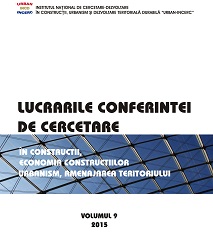Contributions of ecosystem services to a framework for sustainable regional competitiveness
Contributions of ecosystem services to a framework for sustainable regional competitiveness
Author(s): Catrinel Cotae
Subject(s): Environmental Geography, Socio-Economic Research
Published by: INCD URBAN-INCERC
Keywords: integrative propositional analysis; ecosystem services; regional competitiveness; framework; operational
Summary/Abstract: Bringing competitiveness and environmental aspects together, in an attempt to measure the outcomes of human activities on the environment and vice-versa, requires a cross-disciplinary approach. Aiming to move beyond current scientific barriers towards a more operational understanding of competitiveness prominent studies refer to sustainability sciences to convey a more robust methodological framework. Consequently, targeting a clarification of the systemic complexity, common to the vast theoretical framework of competitiveness, environmental elements are regarded in this perspective as being ‘adjustment mechanisms’ or components to either boost or decrease the regional potential. Within this research it is argued that existing literature provides a vague understanding of how territorial competitiveness is influenced by environmental factors and as a response, the perspective of ecosystem services [ES] is introduced. In order to assess the resulting ES mechanisms, integrative propositional analysis technique is used. Addressing a broad range of sustainability issues and furthermore, presenting key overlapping domains from both of the investigated concepts, the resulting construct contributes to the existing literature by providing an integrated analysis and, later on, measurement instrument and implementation tool.To illustrate the process more clearly, the study presents the condensed schematics of the proposed construct, examining several spatial dimensions and exemplifying one of the possible scenarios. The broader discussion focuses on identifying the outcomes of bridging the two concepts from a conceptual and operational perspective. This study represents an alternative approach on understanding the interwoven relationship between the human activities and the environment, following the ES research perspective. The use of integrative propositional analysis as a research method determines an emerging research areas.
- Page Range: 3-12
- Page Count: 10
- Publication Year: 2015
- Language: English
- Content File-PDF

